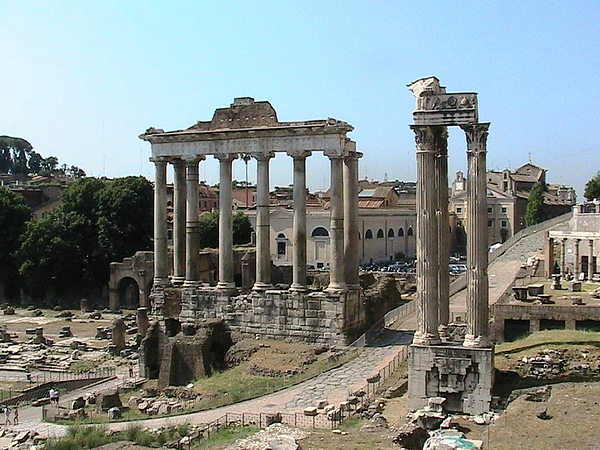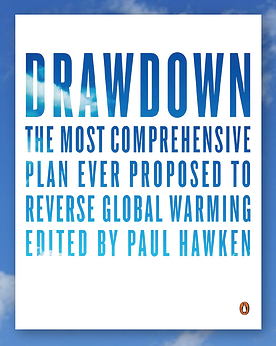I will let you in on a little secret — there is life after collapse. And even though it might be scary while in transition, hope can be found by taking the long view. If you have ever visited an ancient ruin you know the feeling of walking among ghosts from the past. I have walked through places like the Fora Romana in modern-day Italy where once stood the seat of government for the largest empire in history up to that point in time. It is now a tourist site for 21st Century travelers to ponder life in those ancient times. Our ancestors survived even though the civilization did not.

The Roman Forum stands today as a testament of past greatness.
Historians have long debated what caused the Roman Empire to collapse — revealing a host of factors related to inequality and corruption, external threats from invaders, depletion of agricultural productivity, and more.
What matters for us is this: Even though the Roman Empire is gone there are still people alive in the world to study it. Just as there will be future historians who look back on these times and explore how we altered the Earth’s climate, over-reached our global supply chains, depended too heavily on fossil fuels for energy production, and so forth.
As I have written elsewhere, the “climate doomsday” already happened. It is now too late to avoid collapse. Those of us who think like designers must now create schools to navigate the turbulent decades between death and renewal that will define the rest of this century. This is what I mean by needing to be rooted in reality now more than ever.
Human activities have so thoroughly altered the planet that a new geologic age has been named after us — the Anthropocene. The core driver of change enabling us to do this has been our capacity for cultural evolution. We must understand how culture resides at the heart of our dilemmas if we are to carry the mythic narratives, social norms, technologies, and institutional practices forward into whatever new paradigm of global society arises after the collapse.
Many vital things must be preserved during collapse if we are to avoid another Dark Age. Among them is the need to preserve science itself as a set of institutional practices, communities of expertise and storehouses of knowledge. Yes, that’s right. Science is threatened by the planetary crisis. Science is important because it provides the tool set for discernment in a world where those who know what is going on can navigate change effectively.
My collaborators and I are busily laying groundwork for a global network of culture design labs to help humanity navigate through collapse and renewal. We recognize the need for regenerative cultures and the foundational perspective that the new social order must be based on the principles of living systems if it is to have any chance of restoring harmony to the Earth.
Culture design labs are research projects embedded in communities where there is an expressed intention to achieve resilience and well-being for their members. They bring together a nexus of social science research with practitioners who work on policies and programs within each community.

A great list — but nothing about how solutions get implemented.
An example can be seen in the recent publication of Project Drawdown — a research initiative that has identified the 100 top “climate solutions” for avoiding the worst of ecological collapse. I like to describe it as a what-without-any-how for the things that need to implemented in communities around the world. The list includes things like regenerative farming, educating girls, rooftop solar installations, and more. What it doesn’t include is the guided process of cultural change that gets all of these solutions implemented.
This is what culture design labs are for. They set up baseline monitoring and social system modeling of behavior change — openly and transparently created with community members — to provide systems of social learning for change practitioners as they guide the cultural evolution of their communities in real time.

Which future will we guide ourselves toward as a species?
Why must we do this? Because there WILL be survivors and the future world they inherit will be apocalypse or flourishing depending on how we pave the path for them in the midst of transition in the next 50 years. It is our call to service now to be stewards of the change process and avoid the worst calamities that still lurk as threats on the horizon. We cannot accept runaway global warming. Far too many species are destined now to go extinct. This number must be capped and the extinction process brought to a halt.
It is still possible that humanity will take itself down with the ship. Our own extinction is plausible even though unlikely at present. We must do all we can to avoid this extreme outcome — and the only way we will do it is to become Stewards of Planetary Evolution.
We have work to do. Let’s get to it.
Onward, fellow humans.